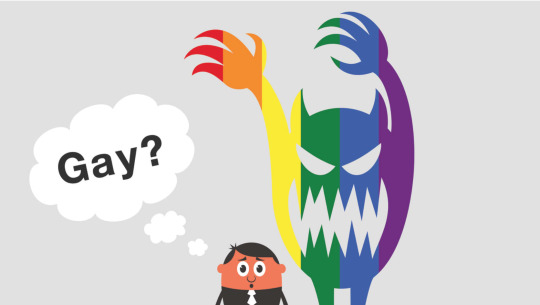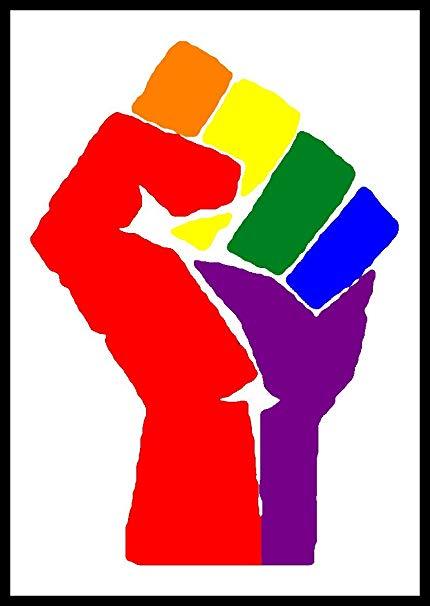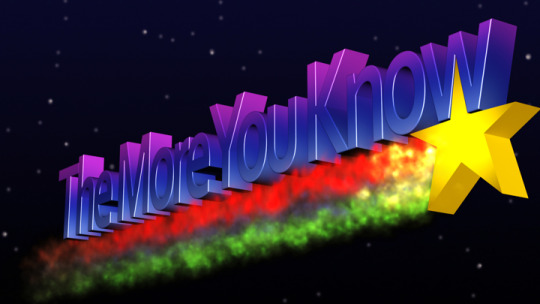#some internalized hatred towards my authentic self expression i think
Explore tagged Tumblr posts
Text
what if i just started putting our art in alterhuman tags... would that really be so bad?
9 notes
·
View notes
Text
Chapter Fifteen : INTERNALIZED HOMOPHOBIA

In his 1998 paper called “Internalized Homophobia and Health Issues affecting lesbians and Gay Men”, Iain R. Williamson defines the term as “Individuals within lesbian and gay communities (who) may internalize significant aspects of the prejudice experienced within a heterosexist society”
He also, right from the start, distances himself from the term “homophobia” as a word that in many ways is unhelpful and inaccurate as it put the emphasis on fear and contextualizes the prejudice within the individual rather than in society and its structures. Still, Internalized Homophobia is the watchword.
In short terms, Internalized homophobia refers to all the negative stereotypes, beliefs, stigma and prejudice about homosexuality and LGBT+ people that someone who has same-sex attraction can feel inside of him/her/them. Depending on how the person truly identifies with (gay, straight, closeted, etc), it can include extreme repression and denial that forces outward displays of heteronormative behavior for the purpose of appearing or attempting to feel “normal” (ugh, here’s that word. again.)
It is a series of conscious and mostly unconscious behaviors in which the person feels the need to promote or conform to cultural expectation of heterosexism. Heterosexism : discrimination or prejudice against homosexuals on the assumption that heterosexuality is the normal normal orientation (just so you know).
A LOOK IN THE MIRROR
“Self-hatred that occurs as a result of being a socially stigmatized person” (Locke, 1998)

That term has been denied by many LGBT+ people as it doesn’t seem to make any sense to many of them. First, “internalized” suggest “weakness rather than the resilience demonstrates by lesbians and gay men”. Then, the word “homophobia” seems like a difficult and seemingly illogical possibility. How can someone who identifies as gay also have feelings of dislike, fear, and true disgust towards themselves ?
Sure, you can switch the term for “homonegativity” or “self-prejudice” all you want, we’ll end up in the exact same place.
You can “easily” identify the scale of your internalized homophobia by going through four key areas of a queer person’s identity : 1. Public identification as being queer 2. Perception of stigma associated with being queer 3. Degree of social comfort with other queer people 4. Beliefs regarding the moral and/or religious acceptability of homosexuality and queerness.

Let’s put myself through the lie detector test that is this totally truth serum article.
I’m completely out to the rest of the world and I have no problem as to identity myself as queer to family members, friends, strangers and the society in general. That problem is solved. Next.
Stigma ? There’s none. We are loved. — Oh no, I do see, feel and suffer from the stigmas that society put on queer people. My way of fighting it is through long and difficult analysis of every aspect of it. With those articles. In my everyday life. I’m aware. I deal with it. So, next.
That’s a doozie. It’s been an evolving process with time. I’ve always had social awkwardness around people, especially big crowds. That’s why I never go to Pride. Well, one of the reasons. As I was developing who I was and how I perceived myself inside the gay community, I would, from time to time, put judgement on some attitudes or ways of being. The eccentric and hyper feminine people I would meet. Oh, youth. I do not do that anymore but I see that , just when a person of color who looks shady comes into my place of work, I tend go straight for the clichés and judgement. I correct myself immediately though. God, society. What did you do to me ?
Fuck society. Fuck religion. Fuck your middle-age opinion of me. Done.

For the third area of expertise, I truly needed to take a huge step back and question my every thought to realize what I was doing. It’s hard to recognize your crimes, especially when those are be committed by others around you on a daily basis. The excessive judgement of other LGBT+ people. The feeling of disgust other LGBT+ people who don’t express themselves in a more heteronormative way. The anger and embarrassment that other LGBT+ people who don’t act like you can “represent” you.
If, like me, you ever ran into those thoughts, be very aware that thinking that is basically colluding with heterosexism and the philosophy of heteronormativity and therefore you are harming other LGBT+ people. Respect the diversity of the community. Respect other people’s individualism.
By oppressing others who are not like you, you are oppressing yourself. Know that you always go for the kill when you do not want to realize there’s something “wrong” with you.

Sometimes, it manifests in what looks like innocent and funny remarks about others. I’m wearing bright pink nail polish at the moment, and if someone I know comes to me and says “well, that’s not I thought a man could wear on his nails but cool for you”, it would sound like nothing. Well, as a great friend told me yesterday about micro-attack on women and how it’s not always obvious but when you’re aware of it, you can feel it in your guts, that was homophobic. And the person who said it doesn’t think so, well that’s internalized homophobia. Your choice to let it slide as unimportant or to try and educate others. I know, it’s tiring and no one is forcing you too. I do believe that’s the only way to gain progress, though.
It can be as common as “I wish I weren’t gay” or feeling alienated from yourself because of your sexual orientation, even if you are out. If you sometimes think “If someone offers the chance to be completely heterosexual, I would take it” then baby, that’s internalized homophobia and you need to seriously work on yourself.

Sometimes, it manifests in bigger, way more harmful situations. I can’t help but think about some of my former schoolmates and the place I come from. Homosexuality was not a open subject. The only gay kid out was the target of so many jokes — though I did not participate in them, I am guilty by omission, as I said nothing to save my own “not-sure-how-to-come-out skin”. But those cunts who made those jokes, I’m pretty sure they were secretly masturbating to men, never for a one second in any conditions to admit this to themselves or others. So imagine a guy like that. If he’s never in a mental or social position (religion, family, values) to come out, what is he gonna do when confronted by what seems to disgust him the most ? Someone’s gonna get hurt. He will self-harm of worse, beat the shit out of some poor queer boy, maybe kill him (the Orlando Gunman was rumored to have been a closeted homosexual. You do the math.) Yes, maybe it’s just “regular” homophobia. Maybe not. Why not start a global conversation about it to avoid some of those unfortunate events ?
WHAT IT DOES TO YOU AND US

Internalized homophobia can prevent you from leading a fulfilling life. It keeps you in a place of perpetual shame, stress and anxiety. You can ruin your relationships (romantic, sexual, friendly) and follow a path of bitterness. Whether you cannot come out or are unable to embrace everybody’s differences, that’s mostly LOVE that you are missing out on. You also harm the individuals around you. Judgmental and hurtful outbursts can break people apart. That shame, stress and anxiety can poison someone else’s mind. Finally, on a more massive scale, your internalized homophobia, when left unchecked, can only feed the pain and struggle of the community. Live together, die alone.
Heterosexism is the real enemy. The queer’s whisperer. It enforces heteronormativity, homophobia, biphobia, transphobia, all kinds of fucking phobias, keeping us shortsighted and fighting amongst ourselves. Live together, die alone.
WHAT TO DO, WHAT TO DO, WHAT TO DO

Think Critically. Do not deny the notion outright.
Read more about it. Why do you think I’m writing those articles ? I ain’t making any money off of it !
Lean about the history of LGBTQ+ rights and movements. I swear, that’s how I gained perspective on this shit.
Get the fuck away from Toxic influences. Family members. Idiotic friendships. Some bullshit media. Anything that doesn’t not prone acceptance as a authentic value for everyone should not influence your judgement.
Practice self-awareness. Be aware of your negative reactions. Examine the sources of your thoughts and be critical of them.
More importantly, Remember that internalized homophobia is not coming from inside of you. You are not sick, and you don’t need a cure. It was forced upon you by a suffocating and violent homophobic society. Guilt and shame towards your realization of internalized homophobia become quickly pointless. Take a break. Take the steps, one by one, and free yourself of that weight that we are ALL kept down by.
The more you know (and shooting star).

0 notes
Text
People build stronger connections when they hate the same things — but it's a risky way to make friends
Strelka Institute for Media, Architecture and Design/flickr
Research shows people tend to build stronger bonds through mutual dislike than sharing positive feelings toward someone.
Expressing hatred defies social lines and expresses vulnerability, which can satisfy others' need for connection.
While this can help you build connections, it's a risky way to actively try to build relationships.
Have you ever heard the cliche, "no bond is stronger than two people who hate the same person?" It turns out there is actually some truth to that statement. Despite hating people being a socially unacceptable act, on the few occasions when people have the guts and/or strong emotion to motivate them to share their negative opinions about a person, it often pays off in the form of new or stronger connections.
Research has found that people form stronger bonds when they are able to talk about their dislike toward someone else than when they both have positive feelings toward someone.
The question is, why does an action as disrespectful as spewing negativity about other people increase hateful individual's quantity and quality of connections?
The fiery emotions that fuel hatred
If you are a generally positive, forgiving person, the concept of hating others, much less someone you barely know, is a foreign concept to you. The majority of the time, people don't say hateful things because they are a cruel, judgmental, antisocial person. Instead, common feelings and psychological needs bring out the worst behaviors in some individuals and prompt them to say negative statements about another person.
Here are four of the primary reasons why people hate others:
1. People want a scapegoat
When you are struggling, whether it's problems at work, low self-esteem, conflicts in your relationships, etc., it feels much better to funnel your negative energy into blaming someone else than to confront your own role in your problems. A lot of people join hate groups because it allows them to funnel the blame for all of their problems into another group of people while being supported by a group of people who share their beliefs and make them feel like they belong.
2. They're lonely and seeking connections, even hateful ones
Many other people join hate groups because it fills their need for friendship and belonging. You don't need to do or be anything special, all you have to do is be negative towards other people. It feels easy. Likewise, some people find it easier to make connections by putting others down and seeing who agrees than to prove to people that they are interesting and valuable companions.
3. They fear the unknown
When someone new enters a group, particularly if they are in a position of influence, many people immediately begin gossiping negative things about the person because they fear how that individual will change their group dynamics. Sharing hatred toward the new person is a way for the existing group to strengthen their bonds in defensive against the outsider.
4. Their insecurities get the best of them
Hatred also surfaces when people are highly insecure. Often, they'll compare themselves to other people and when they come to the conclusion that the other person may be better than them or possesses traits that they don't want to acknowledge that they also share, people may speak out against that person to project their anxiety onto them.
Understanding the bonding power of hatred
Expressing dislike for other people is controversial. We're taught from a young age that you should only say nice things about other people, so when someone says something negative, it catches other people's attention and draws them in. If people share the negative opinions, it opens the ability for people to form connections in three key ways:
1. Hatred defines social lines
Humans desire structure and certainty in their social lives. To establish that, people naturally divide into in-groups (social circles where everyone feel like they belong with one another) and out-groups (people who exist outside of social circles and are typically not welcomed into them). When people declare their dislike for others, it helps people understand the boundaries between social circles. This is a powerful motivator for people to form bonds because it satisfies their need to feel connected to others.
2. Mutual dislike evokes a stronger response than mutual like
In one study, people were shown a video of two people having a conversation in which the man is politely hitting on the woman. After being asked if they liked or disliked the man, they were told they were going to meet people who shared their opinion of them and asked how likely they were going to get along with the person they meet. People who had a negative opinion of the man were far more likely to say they would get along well with someone who shared their negative opinion than those who had a positive opinion.
#3 Sharing hatred can be an expression of vulnerability
Research shows that to form lasting, intimate bonds with people, you have to be vulnerable with them–that is you have to share your authentic, unfiltered feelings. Instead of being negative toward another person because of the internal struggles described above, you may share that you hate someone for a valid, personal reason such as they hurt you or hurt someone and/or something you care about. This instance is a moment of vulnerability because you are sharing a difficult experience which can lead others to hate the other person on your behalf and bond with you.
Strelka/Flickr
Bonds of hatred come at a cost
Though there are some bonding benefits to spewing negativity about other people, don't try to use this tactic to make friends because its risks far outweigh any good that comes from it. Be aware of these potential consequences of speaking poorly about others:
To know if someone else dislikes the same person as you, one of you has to make the first move and say something negative. This can come at a serious cost to your reputation of people around you if they do not agree with your negative opinions. Researchers have discovered that when we hear someone talking about other people, we impose the content of what's said onto the speaker. It's a phenomenon called spontaneous trait transference and to understand how it works, pretend you and I met at a conference and are having a conversation like this:
You: "Hey Vanessa, what did you think of the last speaker?"
Me: "Ugh, he was so boring and dry. I had trouble keeping myself awake."
This can go one of two ways: If you also thought the speaker was boring, we would bond over our shared dislike of him. But, if you thought the speaker was interesting or at the very least, deserving of a decent review, you would hear my opinion and think that I am boring and dry because your brain would project my statements onto me. It might not be instantaneous or something you're fully conscious of, but how you feel about me would decrease in response toward my negativity toward another person.
On the flip side, if I raved about how intelligent the speaker was and how I loved his energy, your brain would also project those traits onto me and give you a more positive impression of me.
Another danger of sharing negative opinions toward other individuals, particularly when you are with people you don't know well is that you create a negative emotional impression of yourself. People only remember a small portion of what you say however, they develop concrete memories of how you made them feel. If your words evoke anger, frustration, disgust and other cynical emotions in other people, they are going to associate those feelings with you. Most people don't like feeling those ways and may be less eager to see you in the future because you bring down their emotional state.
Bottom line: Given these risks, unless your hatred is founded in a socially acceptable ideological belief, comes from a personal experience of being hurt or could be otherwise justified by most people, it is best to keep it to yourself.
NOW WATCH: A Navy SEAL explains what to do if you're attacked by a dog
from Feedburner http://ift.tt/2ALYVql
0 notes